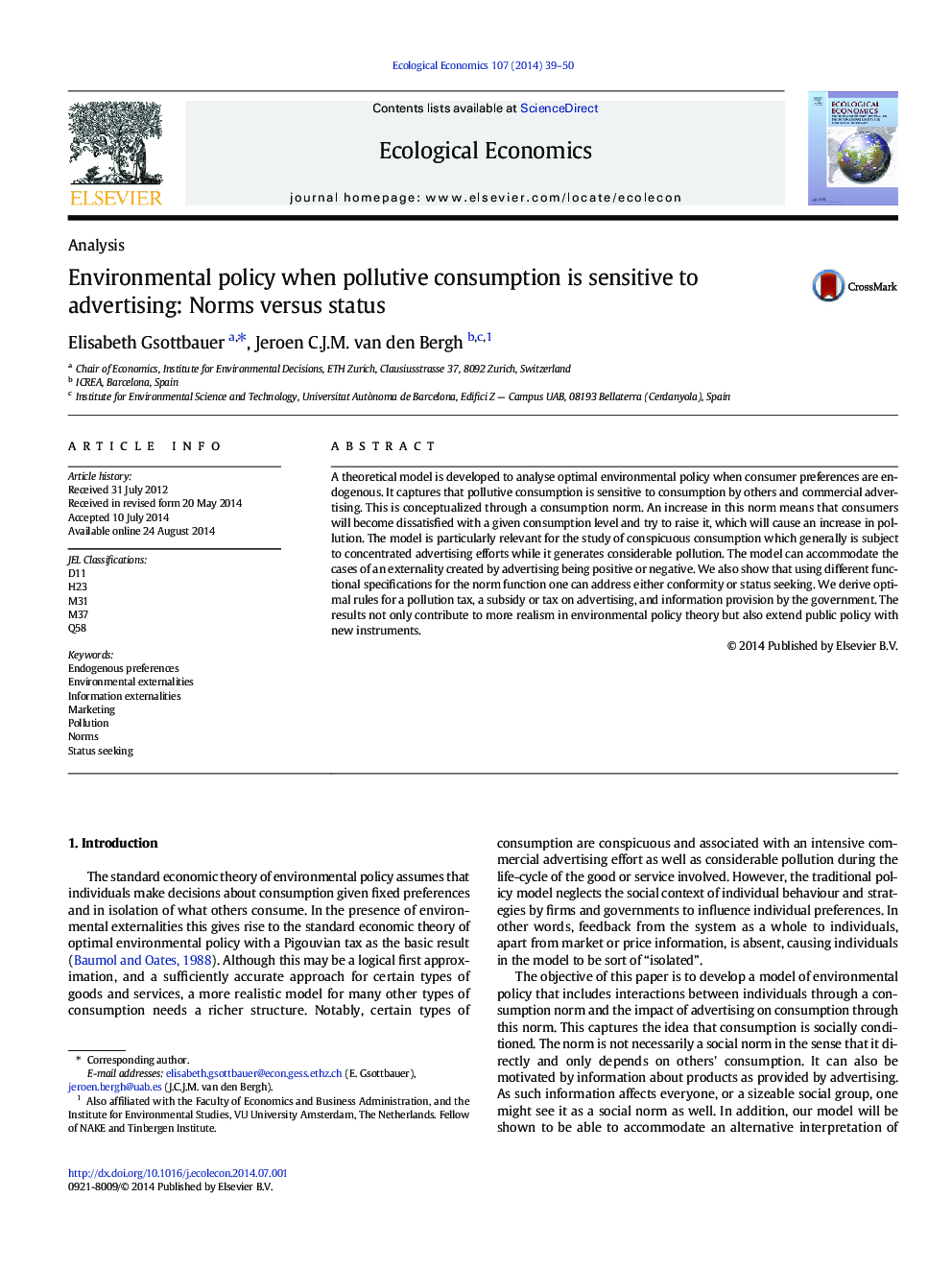| کد مقاله | کد نشریه | سال انتشار | مقاله انگلیسی | نسخه تمام متن |
|---|---|---|---|---|
| 5049503 | 1476372 | 2014 | 12 صفحه PDF | دانلود رایگان |
- We model consumer behaviour accounting for social interaction, advertising and pollution.
- Advertising magnifies negative externalities by stimulating pollutive consumption.
- Optimal rules for regulation of environmental and advertising externalities are derived.
- The social welfare analysis shows that advertising can attain a socially excessive level.
- An optimal policy package includes an adapted Pigouvian and an advertising tax.
A theoretical model is developed to analyse optimal environmental policy when consumer preferences are endogenous. It captures that pollutive consumption is sensitive to consumption by others and commercial advertising. This is conceptualized through a consumption norm. An increase in this norm means that consumers will become dissatisfied with a given consumption level and try to raise it, which will cause an increase in pollution. The model is particularly relevant for the study of conspicuous consumption which generally is subject to concentrated advertising efforts while it generates considerable pollution. The model can accommodate the cases of an externality created by advertising being positive or negative. We also show that using different functional specifications for the norm function one can address either conformity or status seeking. We derive optimal rules for a pollution tax, a subsidy or tax on advertising, and information provision by the government. The results not only contribute to more realism in environmental policy theory but also extend public policy with new instruments.
Journal: Ecological Economics - Volume 107, November 2014, Pages 39-50
